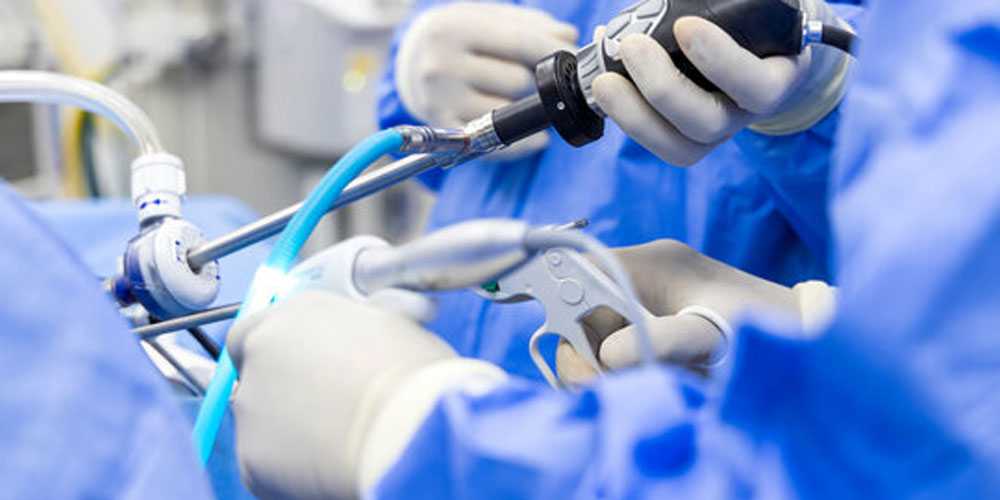In recent years, endoscopic neurosurgery has emerged as a groundbreaking medical technique that has significantly revolutionized the landscape of neurosurgery. This innovative approach offers a minimally invasive avenue for both the diagnosis and treatment of a wide spectrum of intricate brain conditions. Unlike traditional open surgeries, endoscopic neurosurgery relies on small incisions and employs cutting-edge imaging technology, thus mitigating the associated risks and facilitating speedier recoveries.

Comprehending the Essence of Endoscopic Neurosurgery
Endoscopic neurosurgery entails the utilization of a highly specialized instrument known as an endoscope. This slender and flexible tube is equipped with a state-of-the-art high-definition camera and a powerful light source. Neurosurgeons adeptly introduce the endoscope through a diminutive incision, often measuring less than an inch, providing access to the brain or spinal cord. The camera affords real-time magnified visuals of the affected region, which are then projected onto a monitor. This dynamic visualization empowers precise navigation and enables surgical intervention with an unparalleled level of accuracy.
Versatile Applications of Endoscopic Neurosurgery
- Tumor Removal: Endoscopic neurosurgery is the method of choice for the excision of brain tumors. Neurosurgeons deftly navigate intricate brain structures, adeptly reaching and excising tumors with minimal disturbance to the surrounding healthy tissue.
- Cerebral Aneurysm Repair: The procedure proves invaluable in addressing cerebral aneurysms, fragile areas within blood vessel walls that can potentially trigger life-threatening hemorrhages. Surgeons deploy minuscule clips or coils to fortify and repair the weakened segments.
- Hydrocephalus Treatment: Hydrocephalus, characterized by the accumulation of cerebrospinal fluid in the brain, is effectively managed through endoscopic procedures. These interventions establish channels, referred to as shunts, that facilitate the drainage of excess fluid. Consequently, pressure is alleviated, and potential damage is averted.
- Pituitary Gland Surgery: In instances necessitating the removal of pituitary gland tumors (adenomas), endoscopic transsphenoidal surgery emerges as the favored approach. This method is conducted through the nasal passages, obviating the need for open cranial surgery and the associated risks.
- Ventriculostomy: In scenarios involving obstructive hydrocephalus, a condition marked by the hindrance of cerebrospinal fluid flow, endoscopic ventriculostomy is performed. This procedure establishes an alternative route for fluid drainage.

The multifaceted benefits of endoscopic neurosurgery
- Minimally Invasive Nature: Endoscopic neurosurgery's hallmark characteristic is its minimal invasiveness. It entails smaller incisions, resulting in diminished tissue trauma, reduced postoperative pain, and expedited recuperation when juxtaposed with conventional open surgeries.
- Enhanced Visualization: The endoscope furnishes neurosurgeons with high-definition, magnified views of the surgical site. This augments precision and endows them with the capability to perform tumor removals or reparative procedures with unerring accuracy.
- Diminished Risk of Infections: The utilization of smaller incisions translates into a reduced vulnerability to surgical site infections. Consequently, patients are less susceptible to complications stemming from impaired wound healing.
- Abbreviated Hospital Stays: A noteworthy proportion of patients undergoing endoscopic neurosurgery can return home within a few days post-procedure, a notable departure from the protracted hospitalization often necessitated by traditional open surgeries.
- Accelerated Recovery: Patients experience swifter reintegration into their daily routines and a resumption of normal activities in shorter timeframes when compared to traditional surgery.
- Cosmetic Advantages: Particularly in surgeries involving the face or cranium, such as the removal of pituitary gland tumors, endoscopic techniques are associated with less conspicuous scarring and a more aesthetically pleasing outcome.
- Reduced Complication Rates: Empirical evidence from research studies has underscored that endoscopic neurosurgery is linked with lower complication rates and a reduced risk of postoperative neurological deficits.
Endoscopic neurosurgery has emerged as a formidable and transformative modality within the sphere of neurosurgery, presenting a less invasive yet highly efficacious approach to managing an extensive spectrum of cerebral and spinal conditions. As technological advancements continue to unfold and surgical methodologies evolve, endoscopic neurosurgery is poised to assume an increasingly pivotal role in the management of intricate neurological disorders.
Patients facing neurosurgical interventions are encouraged to engage in comprehensive dialogues with their healthcare providers, thereby facilitating informed decisions regarding the potential merits of endoscopic surgery tailored to their individual medical prerequisites. Dr. Ravi Suman Reddy is a well-known expert in neurological surgeries with enormous practice and experience in the intricate field of neurosurgery. He is determined to provide an all-encompassing approach to screen, assist, and manage the discomforts related to neurological matters.

